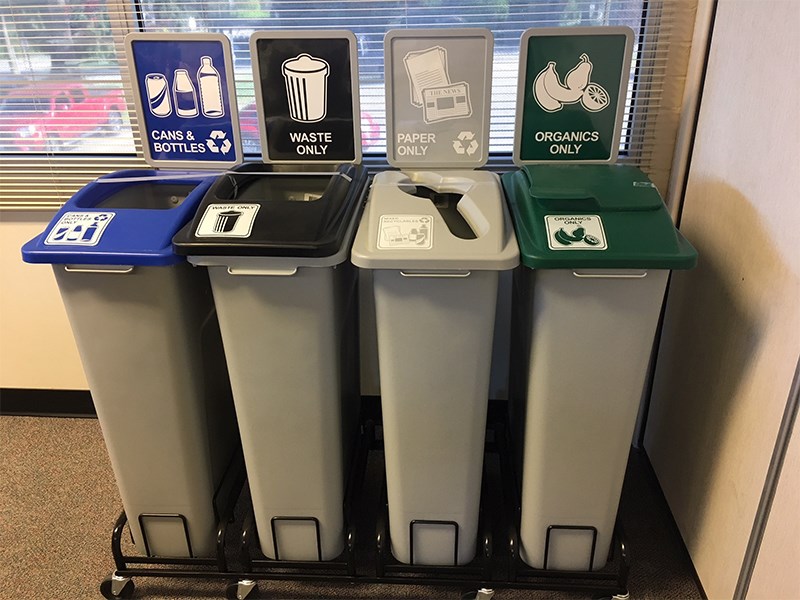Going green to save some green is the goal of a new School District 43 recycling program.
Tuesday, the board of education approved the spending of $513,258 from surplus funds to purchase approximately 1,200 sets of bins for a program that will see food waste, bottles, cans and paper collected and recycled.
“From an education perspective, from an economic perspective and from an environmental perspective, it’s the right thing for us to do,” Ivano Cecchini, assistant secretary treasurer of facilities and planning services told the Tri-City News.
As the province’s third largest school district with 31,000 students, a lot of waste can be generated in a year and SD43 expects to save $60,000 to $70,000 a year from its $285,000 annual waste bill.
“The money we save in waste removal costs will pay for the stations that we’re using,” Cecchini said, explaining that the investment will be paid off in about eight years.
Over the years, SD43 has initiated numerous recycling programs — including an effort to reduce paper use by curbing printing, and no longer prints out agenda packages for the public, for example.
But while recycling paper, tins and food waste is common throughout the district, there is no standardization of programs with some schools doing more and others doing less so this initiative should encourage more recycling and be more efficient, according to the district.
And with SD43’s current waste disposal contract coming to an end this summer and a new contract needed, the time is right to implement a universal program, Cecchini said.
The universal program is expected to be in place in October.
Approximately $8.5 million in surplus is anticipated by the end of the school year, with $1.5 million unallocated, a third of which will pay for the new bins.



